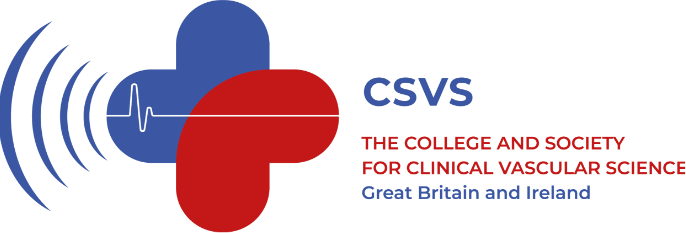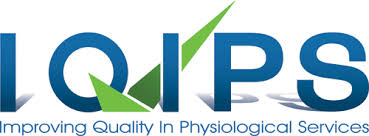IQIPS
Introduction
The Improving Quality in Physiological Diagnostic Services (IQIPS) accreditation scheme is available throughout the UK and continues to be strongly endorsed by NHS England and recognised in a position statement by commissioners and the CQC as a marker of quality1. The CSVS endorses IQIPS accreditation and encourages services to engage in the process of quality improvement and work towards achievement of IQIPS accreditation. Patients are also encouraged to find out whether their local services are accredited2.
The IQIPS Accreditation scheme3 is hosted by the United Kingdom Accreditation Service (UKAS) who are advised by a Clinical Advisory Group consisting of members from the relevant Physiological discipline specific Professional bodies. The CSVS representative is currently Alison Charig 4 .
An up-to-date list of Vascular Diagnostic Services who hold IQIPS accreditation can be accessed on the UKAS website5
2021 Update
The original IQIPS standard was developed in conjunction with the Royal College of Physicians in 2012. To meet the requirement for regular review of accreditation standards it was reviewed last year in conjunction with the Clinical Advisory Group. Our main objectives were to remove duplication within the standard, increase the emphasis on audit and quality management and to align it more closely to international standards such as ISO 15189. The Clinical Advisory Group were determined that the updated standard should remain as close to the original and simple and clear as possible. It is now a generic document applicable to all of the Physiology disciplines, and may also be applicable to other areas of HealthCare in the future.
The new IQIPS 2 (2020)6 Standard can be accessed via the UKAS website.
How does this affect currently accredited services?
There will be a transition period of a year for existing customers to allow time for gap analysis before accreditation is required to the new standard. This effectively means that the current accreditation cycle will be to the old IQIPS standard and services will have plenty of time to get ready for the new standard to be used at their subsequent accreditation cycle. UKAS have liaised with service leads and provided various forms of help and advice. If anyone still needs advice, please contact UKAS via your assessment manager or Laura.Booth@ukas.com.
How will the new standard be applied for customers who aren’t yet accredited?
For services who are “in process” there will be a phased approach and your UKAS assessment manager will guide you through this process. From April 2021, all services who have not yet applied for IQIPS accreditation will be assessed against the new standard.
How will this impact on preparations for IQIPS assessments?
Familiarisation with the new standard is the best place to start. You will notice that there are now 5 domains. The 5th is the “Leadership and Management” domain which was created by removing these aspects from the other 4 domains which are now much simpler. Meeting the requirements for the Leadership and Management domain should not therefore require significant new work.
Depending on your service, the new focus on audit and quality management will probably require you to think about some new processes. Assessors will be looking for some sort of Quality Management System (QMS) and you may find it helpful to contact colleagues in Biomedical Sciences who will be familiar with implementation and use of QMS processes.
You will also need to think about Uncertainty of Measurement (UoM). This is again more familiar to our colleagues in Biomedical sciences and requires us to think about how steps in our processes affect the final diagnosis……and what this means for the patient. You should be asking yourselves questions like this: “How certain are we that the diagnosis/measurement is accurate?” “Is there a variability in our measurements that needs to be known when interpreting the results?” “If we measure something as 4.5cm, could it actually be 4cm….or 5cm?...and what does this mean for the person reading the report and making decision based on the measurement?”
This is a new area of work for the Physiology disciplines and is something that the Clinical Advisory Group are currently grappling with. We are working with our respective professional bodies to create guidance on this subject and we now have a Vascular UoM document which is available on the CSVS website with the other Professional Performance documents. It is a “work in progress” document and has been designed to offer some initial advice. As the new standard is implemented by services, we plan to review and update the UoM document with more detailed examples. Because UoM is a new focus for IQIPS and services, the expectation is that services will only need to be in the initial stages of its implementation as they transition to IQIPS 2. It would be unreasonable to expect services to have fully implemented UoM from next year and recognition of this will inform assessments. Services will be expected to evolve their processes as we all learn more about UoM.
Is there any change to the assessment process?
COVID-19 has inevitably had an impact on recent on-site assessments and UKAS have moved towards a blended approach to assessments including the use of remote assessing where possible. In the future, assessments will also be informed by a more risk-based approach and they won’t require services to upload so much documentation. This will significantly simplify the process of preparing for each yearly cycle of re-accreditation allowing services to concentrate on the new requirements of IQIPS 2.
Are there any other resources to help us prepare for IQIPS?
The CSVS have previously published a series of articles providing practical advice, these have been written by members of the CSVS who have experience of the accreditation process and are available in the IQIPS area of the CSVS website. The content is still applicable to meeting the requirements of IQIPS 2 and is a good resource if you are new to service accreditation and its requirements. We also have a list of Vascular specific references which services may find useful.
Useful Websites:
3) Search for Accredited Vascular Services
5) IQIPS Standard Statements Guidance
Useful Contacts:
The CSVS IQIPS representative can be contacted via the CSVS Professional Standards Committee via: psc_chair@svtgbi.org.uk
Resources:

